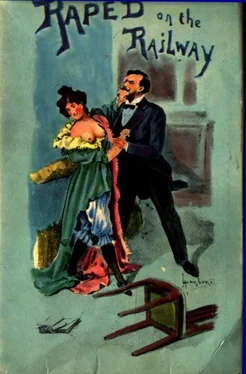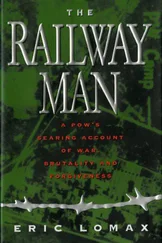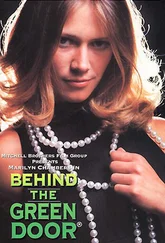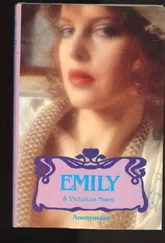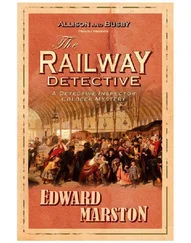Anonymous - Raped on the Railway
Здесь есть возможность читать онлайн «Anonymous - Raped on the Railway» весь текст электронной книги совершенно бесплатно (целиком полную версию без сокращений). В некоторых случаях можно слушать аудио, скачать через торрент в формате fb2 и присутствует краткое содержание. Жанр: Эротика, Секс, на английском языке. Описание произведения, (предисловие) а так же отзывы посетителей доступны на портале библиотеки ЛибКат.
- Название:Raped on the Railway
- Автор:
- Жанр:
- Год:неизвестен
- ISBN:нет данных
- Рейтинг книги:5 / 5. Голосов: 1
-
Избранное:Добавить в избранное
- Отзывы:
-
Ваша оценка:
- 100
- 1
- 2
- 3
- 4
- 5
Raped on the Railway: краткое содержание, описание и аннотация
Предлагаем к чтению аннотацию, описание, краткое содержание или предисловие (зависит от того, что написал сам автор книги «Raped on the Railway»). Если вы не нашли необходимую информацию о книге — напишите в комментариях, мы постараемся отыскать её.
Raped on the Railway — читать онлайн бесплатно полную книгу (весь текст) целиком
Ниже представлен текст книги, разбитый по страницам. Система сохранения места последней прочитанной страницы, позволяет с удобством читать онлайн бесплатно книгу «Raped on the Railway», без необходимости каждый раз заново искать на чём Вы остановились. Поставьте закладку, и сможете в любой момент перейти на страницу, на которой закончили чтение.
Интервал:
Закладка:
The Mounted Infantry were comfortably ensconced under the shelter of a large and thick plantation at the foot of the hill to the right, and just under Smith's Nek. The 18th Hussars had also moved out from the camp, and were working round the hill preparing a surprise for the Boers busily engaged in front.
In these positions all the men remained for a time, to take breath and prepare for the final onslaught upon the enemy. Then the advance was resumed over most trying and difficult ground. The critical moment had come.
The Boers poured down lead from Maxims and rifles, and, despite the clever manner in which our men took cover, they began to fall quickly.
By toilsome and steady work the Fusiliers and Riflemen at length secured good positions high up on the hillside, whence it would be feasible to make the final rush.
Suddenly the artillery ceased firing. Another moment, and at the word of command our men fired two volleys, and then with wild battle cries their pent-up emotion and energy found vent in an irresistible rush up the remainder of the hill, and a swinging charge right amongst the enemy. For a quarter of an hour there was bloody work at short range and then at close quarters. Then the Boers fled in disorderly retreat, closely pursed by our men and the Mounted Infantry.
As the enemy stampeded down the hillside they found to their dismay that the whole regiment of hussars had forestalled them. The cavalry had got right to the enemy's rear, had captured many of their horses, and stampeded the others. One contingent of the enemy were thus perfectly helpless. The fought well enough for a little time and then those who were left surrendered.
Parties of men were sent out to bring in the wounded and report the dead. Brandon was in one of these parties, and as he was examining the dead and wounded which lay thickly strewn in front of the Boer entrenchments, he fancied he heard his name whispered. He turned and saw, lying under a gigantic Boer, his friend Captain Sinclair.
With the assistance of a comrade, Brandon pulled away the huge corpse, but one glance at his friend showed him that he was seriously, if not mortally, wounded.. Blood was slowly ebbing from a bullet wound in the breast, and he had also received a severe sabre cut from the gigantic Boer he had shot a moment later.
Brandon supported his friend's head, and told his comrade to run and fetch a litter if he could get one, in order to convey the wounded man to the field hospital.
“No, no,” said Captain Sinclair, with more strength than could have been expected considering his condition; “I've got my billet, and no doctor can do me any good, so he had better not waste time over me. But you stay with me Brandon, for I feel I have not long to live, and I have a message I should like to send — home.”
Brandon, of course, promised that he would perform any commissions the other charged him with.
“You will find in my tent,” said the dying man, “a letter to my wife which I wrote last night. I had a presentiment I should get hit to-day, and I wrote my last wishes to her. Poor little woman, I shall never see her again in this world. I don't want you to post that letter to her. The war will soon be over, and then you will return to Scotland, no doubt, and I want you to see my wife and give her the letter. Tell her that I died blessing her name.”
He paused a moment, exhausted, and Brandon gave him a sip of brandy.
“Tell her,” continued Captain Sinclair, “that her portrait never left me till I placed it in your hands.
With an evidently painful effort, the dying man put his hand in his breast, and drew out a small leather case which he gave to Brandon. “Give her I that, and the letter, with your own hands. Promise me that,” he added eagerly.
“I promise you that, — if I live, — the portrait and letter shall be placed in your wife's hands.
The wounded man smiled gratefully, then a film came over his eyes, his head dropped back and he was dead.
A week later Brandon also received a bullet, but it was in his leg, and in a month he was on his feet again, but incapable of further active service, the bullet having injured one of the bones, so that he walked with a slight limp. This was not insufficient to incapacitate him for the cavalry, but so many regulars were arriving from England, that his services were declined by the military authorities.
He was not altogether sorry, for the excitement of the war had driven out of his mind the melancholy which had oppressed him, and he longed to see England again. Besides he had promised to execute the dying wishes of Captain Sinclair.
He had found the letter in that officer's tent the day after the battle of Tulandand, and had put both letter and locket away in a safe place. The locket he had never opened, having been deterred from doing so by a feeling of delicacy or reverence for the dead man's wishes.
One of those lucky speculations which are only met with in half-civilized countries, had enabled him to make enough money to pay his passage and leave him a good bit over. He took passage in a Cape liner, and three weeks later was in Southampton; from thence he went to London, and the next night took his seat in the Scotch Express.
As he was borne along at the rate of sixty miles an hour, the memory of the last time he had undertaken the journey crossed his mind, and all the circumstance of that eventful night flashed before him.
“What a blackguard I was,” he said to himself. “And how badly I behaved to that little woman. She could have put me in gaol for five years if she had liked, and I should have deserved it. I wonder who she was? I heard the big man call her some name that night, but I have clean forgotten what it was. I keep fancying it was Sinclair, but that of course is nonsense — a trick of the brain. By the way, I hope I shall know poor Sinclair's widow when I see her. I have never looked at her portrait yet — kept back by some indefinable feeling for the dead man — but as I am to see the lady in the flesh and blood within the next few hours, surely it can do no harm to look at her portrait.”
He pulled the little case out of his pocket, opened it and stood up in order to get the full light of the lamp on it. As he looked, his eyes and mouth opened wide, and with a groan he dropped back in his seat.
“By Jove! the woman I raped in this very train!
EPILOGUE
Brandon's first care on arriving at Glasgow was to disguise himself so effectually that there was no chance of recognizing him. Then he made his way to Acacia Villa, and told the servant that an old soldier, who had been with Captain Sinclair in Africa, wanted to see her mistress.
He was shown into the drawing-room, and in a few minutes Mrs. Sinclair, looking very pretty in her widow's weeds, came into the room. Brandon, who had tried to make himself look like an old soldier, was glad to see she did not know him again. He told her all the particulars concerning her husband's death, and handed her the locket and the letter. She looked long at the locket with tears in her eyes, and she read the letter through carefully. As she reached the end she started and looked hard at Brandon. “Did my husband have brain fever, or sunstroke Mr…?”
“Thompson, mum. Bill Thompson — at your service,” replied Brandon. “No, mum, I never see any signs of it.”
Mrs. Sinclair asked a few more questions, and when the messenger got up to leave she pressed a couple of sovereigns into his hand.
“I suppose an old soldier is not too proud to accept a present from an officer's widow,” she said.
To her surprise the old soldier dropped on his knees before her.
“I can keep up this deceit no longer,” he cried. “You see before you the wretch who did you a cruel wrong, but who has never ceased to reproach himself for it. I loved you from the first moment I set eyes oh you and the thought of you has been my stay in life many a weary night. Your image prevented me from taking my own life, or throwing it away, on a hundred occasions.
Читать дальшеИнтервал:
Закладка:
Похожие книги на «Raped on the Railway»
Представляем Вашему вниманию похожие книги на «Raped on the Railway» списком для выбора. Мы отобрали схожую по названию и смыслу литературу в надежде предоставить читателям больше вариантов отыскать новые, интересные, ещё непрочитанные произведения.
Обсуждение, отзывы о книге «Raped on the Railway» и просто собственные мнения читателей. Оставьте ваши комментарии, напишите, что Вы думаете о произведении, его смысле или главных героях. Укажите что конкретно понравилось, а что нет, и почему Вы так считаете.
